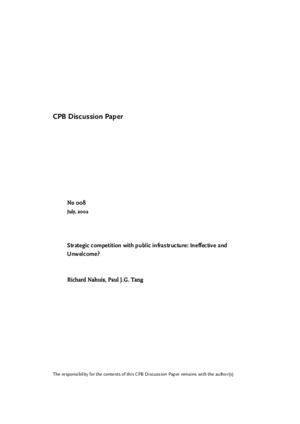Strategic competition with public infrastructure; ineffective and unwelcome?
Effect van infrastructuur op aantrekken bedrijvigheid discutabel
We are sorry, unfortunately there is no English translation of this page.
Countries invest in international infrastructure in an effort to attract firms. Acquiring the position of a hub would make this effort successful.
We use a model of international trade with monopolistic competition, increasing returns to scale and transport costs to analyse policy competition through infrastructure investment.
For a small or backward country the strategic effect of attracting firms is less important than for large or advanced countries. A country that acquires a hub-position sees its welfare improve. The other countries may gain or lose; they benefit from cheaper international trade, but suffer from the relocation of firms.
In the case of line infrastructure the spoke countries will invest to eradicate the hub position, whereas in the case of point infrastructure they will not. Policy competition is more likely to deliver too much infrastructure investment when transport costs are low and the strategic effect is more important. A globalising world may thus call for international co-ordination.
